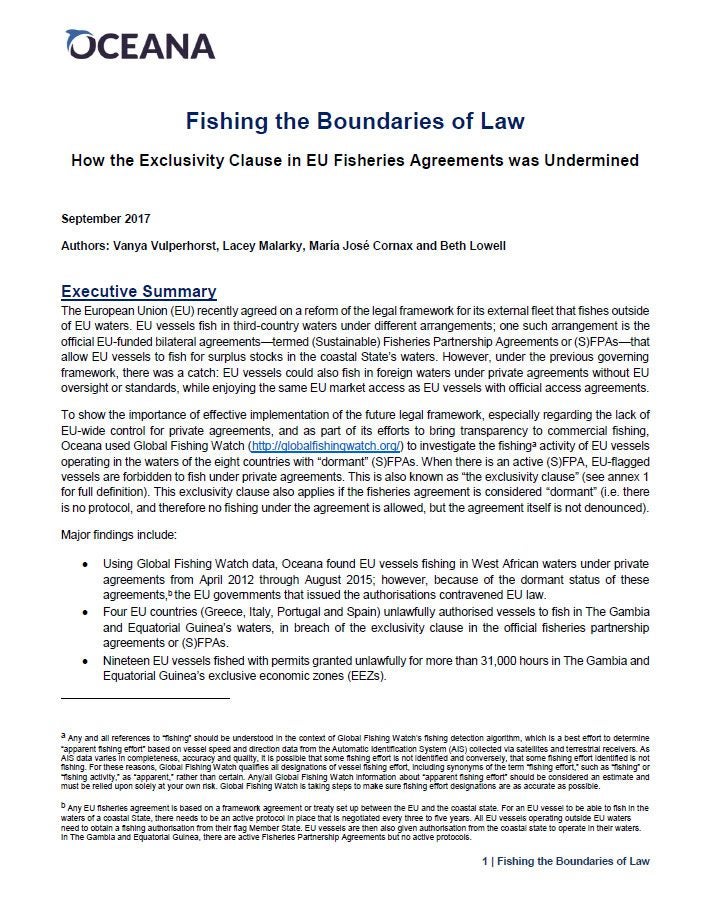Report | September 12, 2017
Fishing the Boundaries of Law
The sustainability of fisheries is crucial for the livelihoods, food security and nutrition of billions of people. Fish is one of the most traded commodities globally, however, many of the world’s fisheries are in trouble. A large number of fish populations are fully fished or overfished and the global seafood supply is severely threatened, however, the demand remains high with more than 3.1 billion people relying on fish as an important source of dietary protein. The EU is the largest market for seafood products in the world. In addition to importing more than 60 percent of seafood products, this demand is met, in part, by the catches of EU vessels fishing outside of EU waters, which represents 28 percent of total EU catches. With more than 90 percent of fish populations in the Mediterranean Sea and 41 percent in Atlantic waters experiencing overfishing according to the last estimate in 2015, European fishers must travel farther and fish longer to meet the high demand of the European market.
The EU’s distant water external fleet fishes around the world, largely in international waters and in the exclusive economic zones (EEZs)—or a nation’s sovereign waters, which extend 200 nautical miles from the coast—of developing coastal States in Africa, the Pacific Islands, the Indian Ocean and northern countries such as Norway, Faroe Islands and Greenland.
Most of the official EU access agreements are conducted between the EU and coastal nations on the western coast of Africa. These waters are home to some of the most productive and economically important fishing grounds, and as such, they attract fishing vessels from across the world, including China, Taiwan, PoC, Korea and Europe. West African waters are also prey to the highest levels of illegal and unreported fishing worldwide, and at least $2.3 billion annually is lost to IUU fishing in this region. With 46.5 percent of the assessed stocks in the Eastern Central Atlantic experiencing overfishing,2 there is an imminent threat to the health of these fisheries. Like the other large distant water fleets, the scale and reach of the EU’s fishing activities abroad can have a significant impact on the long-term conservation and management of global fish stocks. This is concerning for the fisheries resources of the world’s most vulnerable communities, like developing African nations, where fisheries management is a critical issue for both food security and income.


